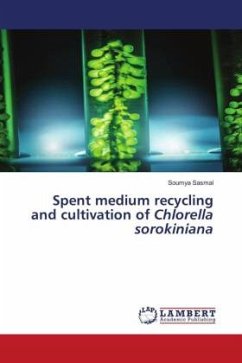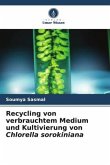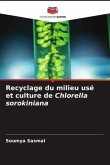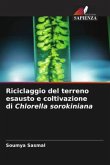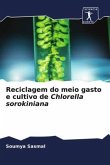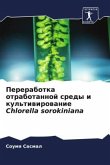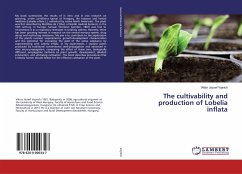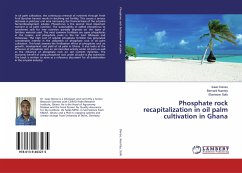Microalgae have gained substantial attention as a potential feedstock to produce various green chemicals and fuels. The high-water requirement to produce microalgae biomass increases the water footprint which is one of the major challenges in the production of microalgae and it might limit the microalgae production. Therefore, recycling of culture medium is necessary to reduce the water footprint of microalgae biomass production. In this study, recycling of culture medium for the cultivation of Chlorella sorokiniana (microalgae) and the effect of medium recycling on its growth was investigated. Microalgae were cultivated in recycled spent medium up to three recycled stages. Specific growth rate of microalgae culture in BG-11 medium was found 1.303 Day-1 and it declined to 1.076 Day-1 after repeated recycling of spent medium. Total dissolved solids increased to 1647 mgL-1 after repeated recycling of spent medium as compared to BG-11 medium in which it was estimated to be 824 mg/L.The decline in growth rate in the spent medium was majorly due to inorganic compounds accumulation in the medium.
Bitte wählen Sie Ihr Anliegen aus.
Rechnungen
Retourenschein anfordern
Bestellstatus
Storno

